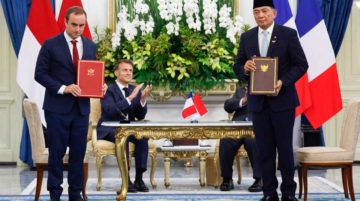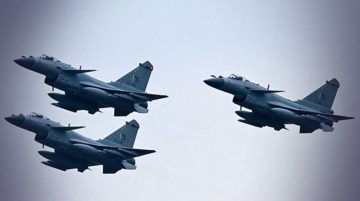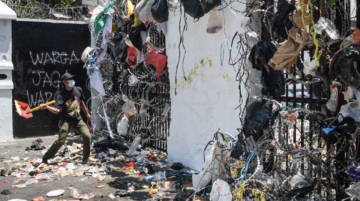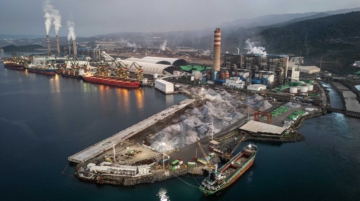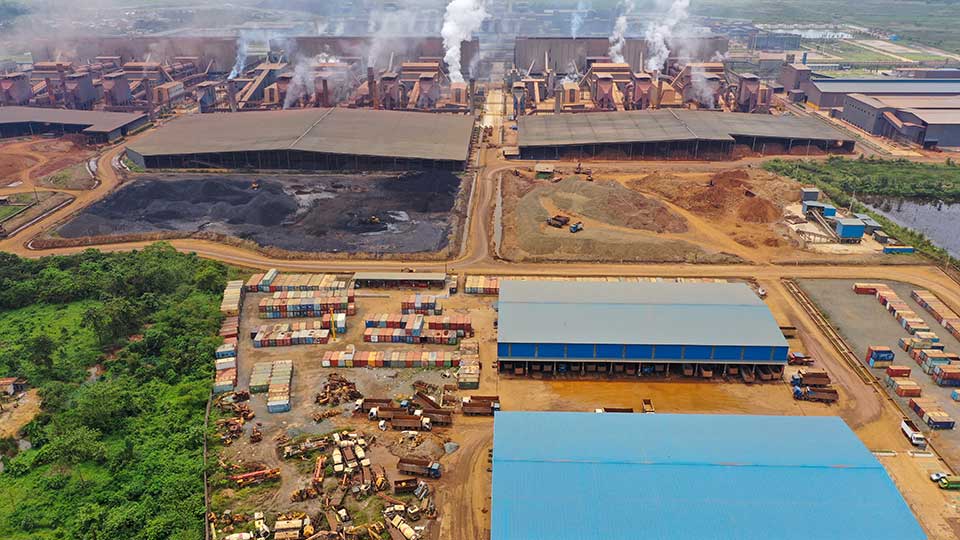
As demand for electric vehicles surges, Indonesia, the world’s largest source of battery-grade nickel, has become a focal point of global concern. Rapid and often exploitative mining projects, many driven by Chinese investment, have strained local communities and ecosystems. Now, Indonesia decided to restrict new nickel-smelter investments.
A recent analysis from a WeChat public account that tracks global mining trends explains what Jakarta’s new policy entails. The regulation tightens the “Industrial Business License” (IUI) system to freeze new investment in nickel smelters, industrial facilities that convert raw ore into battery-grade material. But the author warns that the move risks becoming purely cosmetic. Without parallel limits on upstream mining permits, a credible decarbonization roadmap, and an integrated environmental policy, the IUI freeze will not move Indonesia away from its extractive, high-emissions development model.
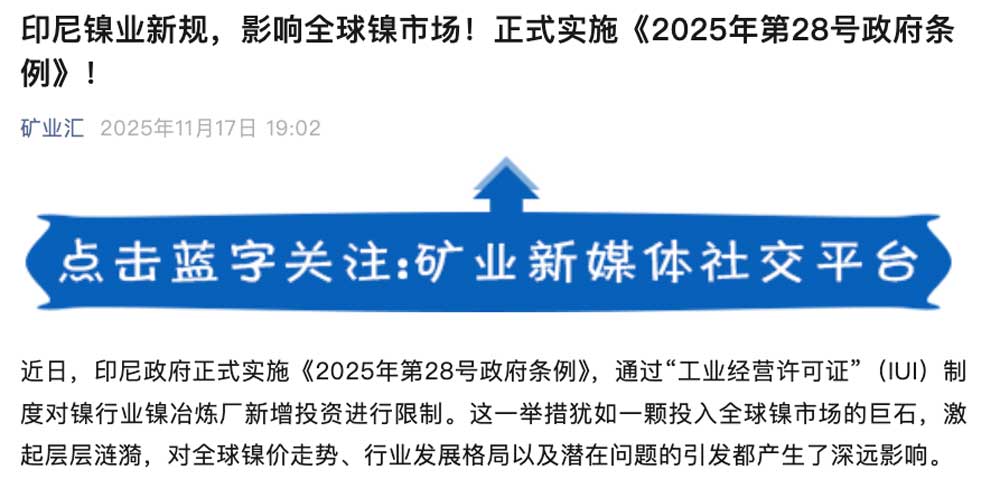
The scale of Indonesia’s nickel build-out underscores the stakes. The country already has 54 smelters in operation, 38 under construction, and 45 more in planning. Halting new approvals does not stop projects already in the pipeline, but it does substantially slow future expansion.
China remains central to this sector. More than 30,000 Chinese workers have traveled thousands of miles to remote islands in eastern Indonesia to operate high-risk smelting facilities.
The author also reflects on the deeper problem behind the new restrictions: years of unchecked, sometimes chaotic expansion. Driven by rising nickel prices and surging global demand, capital poured into Indonesia’s smelting sector, leading to a rapid increase in plant numbers and processing capacity. Yet much of this growth was blind and poorly coordinated, outpacing real market needs and amplifying structural imbalances.


